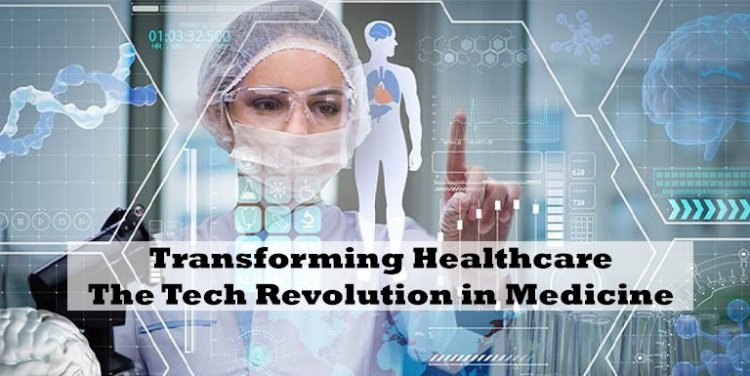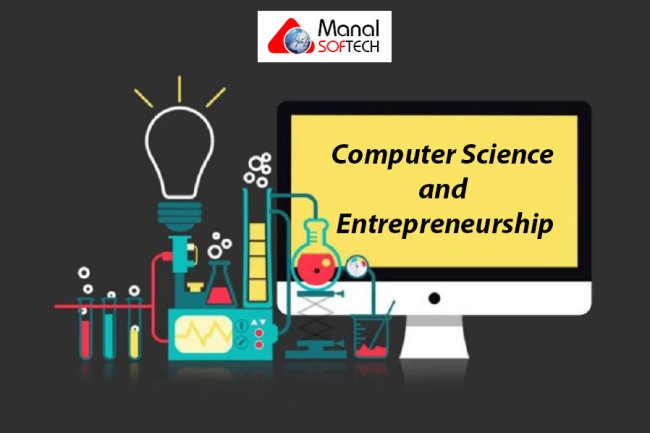Transforming Healthcare: The Tech Revolution in Medicine

The intersection of technology and healthcare has ushered in a new era of innovation, shaping the future of medicine in unprecedented ways. From electronic health records and telemedicine to artificial intelligence and wearable devices, technology is revolutionizing healthcare delivery, patient outcomes, and the very nature of the medical profession. In this article, we'll explore the profound impact of technology on the healthcare industry and how it's changing the landscape of medical practice.
Electronic Health Records (EHRs): A Digital Revolution
Gone are the days of paper-based medical records and cumbersome filing systems. Electronic Health Records (EHRs) have transformed healthcare by digitizing patient data, making it easily accessible to healthcare providers. This digital revolution has several key advantages:
Efficiency: EHRs streamline administrative tasks, reducing paperwork and enabling faster access to patient information.
Accuracy: Electronic records reduce the risk of errors, ensuring that healthcare providers have the most up-to-date patient information.
Data Sharing: EHRs facilitate secure data sharing among healthcare professionals, leading to better-coordinated care.
Patient Engagement: Patients can access their records, schedule appointments, and communicate with their healthcare providers through patient portals.
Telemedicine: Bridging the Distance Gap
Telemedicine, or telehealth, leverages technology to provide remote medical services. This approach has gained significant traction, especially in the wake of the COVID-19 pandemic. The benefits of telemedicine include:
Access to Care: Telemedicine extends healthcare services to underserved and remote areas, improving access to medical expertise.
Convenience: Patients can consult with healthcare providers from the comfort of their homes, reducing the need for in-person visits.
Cost Savings: Telemedicine can be more cost-effective, eliminating travel expenses and reducing the burden on healthcare facilities.
Artificial Intelligence (AI) in Healthcare
Artificial intelligence is making waves in healthcare, driving advancements in diagnosis, treatment, and predictive analytics. AI applications in healthcare include:
Diagnostic Accuracy: AI-powered diagnostic tools can analyze medical images, like X-rays and MRIs, with remarkable precision, helping to detect diseases earlier.
Drug Discovery: AI accelerates drug discovery by analyzing vast datasets, leading to the development of new medications and treatment options.
Personalized Medicine: AI analyzes patient data to tailor treatment plans, medications, and preventive measures, taking into account an individual's unique genetic makeup and medical history.
Predictive Analytics: AI algorithms help predict disease outbreaks, optimize hospital resources, and improve patient care through data analysis.
Wearable Technology and Remote Monitoring
Wearable devices, from smartwatches to health trackers, are revolutionizing patient monitoring. These devices can collect real-time data on vital signs, physical activity, and more, offering benefits such as:
Continuous Monitoring: Wearables provide continuous health data, enabling the early detection of health issues.
Chronic Disease Management: Patients with chronic conditions can better manage their health with remote monitoring and real-time feedback.
Data-Driven Wellness: Individuals can use wearable technology to track fitness goals, diet, and overall well-being.
Challenges and Considerations
While the integration of technology in healthcare is promising, it also comes with challenges, including:
Privacy and Security: Protecting patient data is paramount, and healthcare organizations must invest in robust cybersecurity measures.
Digital Divide: Ensuring equal access to technology and healthcare services for all is an ongoing concern.
Regulatory Compliance: The healthcare industry is highly regulated, and technological advances must align with compliance requirements.
Healthcare Workforce Adaptation: Healthcare professionals need training to adapt to new technologies and workflows.
The tech revolution in healthcare is not a distant future; it's happening now. As technology continues to reshape the healthcare landscape, it offers the promise of better patient care, early disease detection, improved efficiency, and greater accessibility. The future of medicine is one where data-driven decision-making, artificial intelligence, and telehealth become integral to the patient experience.
For both patients and healthcare providers, embracing these technological innovations is not just a choice but a necessity in delivering and receiving high-quality healthcare. As technology continues to advance, healthcare will undoubtedly see even more groundbreaking developments, making our journey towards healthier lives all the more exciting.
What's Your Reaction?















